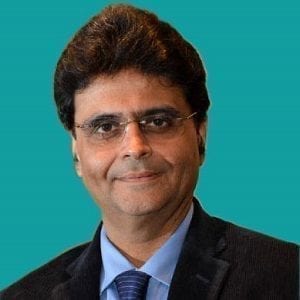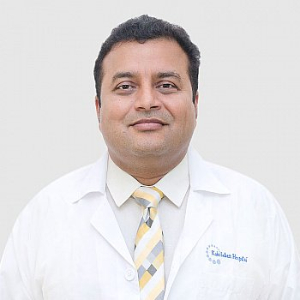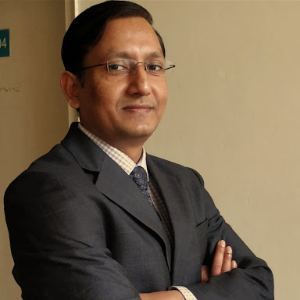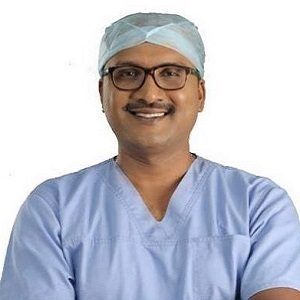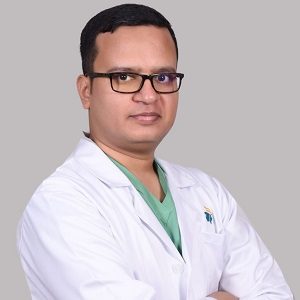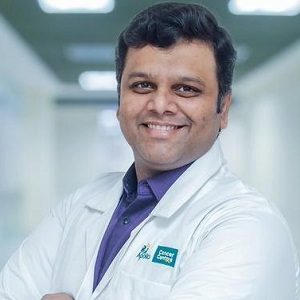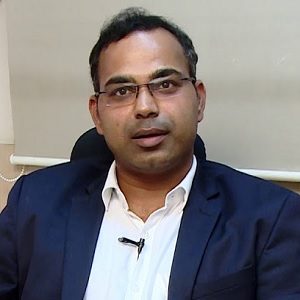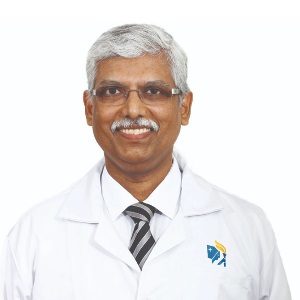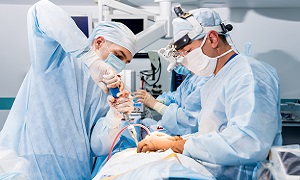Best Vertebroplasty Doctors in India
- Orthopedic Surgeon & Spine Surgeon, Mumbai, India
- Over 25 years’ experience
Profile Highlights:
- Dr. Ram Chaddha is a specialist Spine Surgeon in Mumbai with expertise in the management and treatment of all kinds of spinal disorders for over 25 years.
- Dr. Chaddha is trained in Minimally Invasive Spine Surgery and is also among the few surgeons in India to hold expertise in Minimally Invasive Cosmetic Spine Surgery.
- Dr. Ram Chaddha spent a considerable number of years training undergraduate and postgraduate students and has also been an examiner for such courses at Mumbai University.
- Orthopedic Surgeon and Spine Surgeon, Mumbai, India
- Over 20 years’ experience
Profile Highlights:
- Dr. Vishal Peshattiwar is a leading Spine Surgeon in Mumbai specializing in Minimally Invasive Spine Surgeries (MISS)
- He has an experience of more than 2 decades in spine surgery and holds the credit of performing over 4000 spinal surgeries to
- He is the first in India to use the MISS technique on a patient with liver failure and Tuberculosis.
- Dr. Vishal Peshattiwar’s most notable case till date was performing a Revision Spine Surgery through MISS on the oldest patient in India.
- Orthopedic & Spine Surgeon, New Delhi, India
- Over 14 years’ experience
Profile Highlights:
- Dr. Om Prakash Gupta is a reputed Spine Surgeon in India.
- He is currently functioning as a Consultant – Orthopedics & Spine at Max Smart Super Speciality Hospital, New Delhi
- He has over 14 years of experience.
- Orthopedic Surgeon, Chennai, India
- Over 21 years’ experience
Profile Highlights:
- Dr. A Navaladi Shankar is a well-known spine surgeon and orthopedist in Chennai with 21+ years of experience.
- He completed an MBBS from Al-Ameen Medical College, MNAMS from the National Board of Education, and a Diploma from Sri Ramachandra Medical College and Research Institute.
- Dr. Shankar holds expertise in Laminectomy, Lower Back Pain and Neck Pain Treatment, Arthritis Management, and Trauma Surgery.
- Orthopedic Surgeon & Spine Surgeon, New Delhi, India
- Over 18 years’ experience
Profile Highlights:
- Dr. Amit Kumar Agarwal is a Delhi-based orthopedic, joint replacement, and spine surgeon consultant who has been assuring joint and spine health for about 18 years.
- Dr. Agarwal has garnered numerous accolades for his work in treating Joints and Musculoskeletal Disorders, pain management, sports injury, and articular degeneration during his career.
- Orthopedic and Spine Surgeon, Gurugram, India
- Over 25 years’ experience
Profile Highlights:
- With over 25 years of experience, Dr. Rajesh Kumar Verma can be generally considered a boon for people suffering from complex, bone, joint, or spine disorders.
- Currently known as one of India’s leading spine experts in India, Dr. Rajesh Kumar Verma performs as many as 50 surgeries in a month. The types of surgeries he performs include all types of spine surgeries, joint replacements, as well as complex trauma surgeries.
- Orthopedic Surgeon and Spine Surgeon, Chennai, India
- Over 12 years’ experience
Profile Highlights:
- Dr. Madhu Kiran Yarlagadda is an orthopedics – consultant specializing in Joint and spine surgery and works at the Apollo hospitals of Chennai.
- Dr. Madhu Kiran Yarlagadda’s team carried out Robotic Spine Surgery for the first time in South-East Asia and performed Endoscopic Transforaminal Spine Surgery in Chennai.
- He treats spine diseases and has the facilities and expertise to perform robotic spine surgery. Along with that, he treats patients with joint and other orthopedic issues.
- Spine Surgeon and Orthopaedic Surgeon, Chennai, India
- Over 18 years’ experience
Profile Highlights:
- Dr. Muralidharan Venkatesan is a consultant in spine surgery from Chennai.
- He provides comprehensive cervical (neck), thoracic (upper back), and lumbosacral (lower back) conditions treatment.
- Dr. Venkatesan pursued MBBS, MRCS, and a fellowship FRCS and shifted his specialization to spinal surgery.
- Dr. Venkatesan has his papers published in several journals.
- Orthopedic Surgeon and Spine Surgeon, Chennai, India
- Over 23 years’ experience
Profile Highlights:
- Dr. Ravi Venkatesan is a spine surgery specialist from Chennai, Tamil Nadu.
- His experience in spine surgery, orthopedics, and spine deformity surgery date back nearly 23 years.
- Dr. Venkatesan has performed several surgeries and has been an active member of various orthopedics groups.
- Many organizations have recognized his service and have awarded him for his dedication.
- Orthopedic Surgeon and Spine Surgeon, Gurugram, India
- Over 15 years’ experience
Profile Highlights:
- Dr. Hitesh Garg is one of the best spine surgeons in Gurugram.
- Dr. Hitesh Garg has undertaken over 5000 spine surgical operations, including 2500+ spinal fusions (TLIF, ACDF, and others); 1000 malformation revision operations (Scoliosis and kyphosis), 300 lumbar and cervical artificial disc replacements, 500 fracture treatments, and 500 other intricate procedures such as a spinal tumor, congenital defects, and spinopelvic fixations.
Best Vertebroplasty Hospitals in India
Reliance Hospital, Mumbai
- City: Mumbai, India
Hospital Highlights:
- Reliance Hospital is one of the best super-specialty care hospitals in Navi Mumbai.
- The main purpose of this hospital is to become a trustworthy place for the best health and hope for society. The hospital is well connected to the suburbs of Mumbai and Navi Mumbai.
- The hospital has various specialty departments, viz., Accident & Emergency, Anesthesiology, Dental Services, Dermatology, Diabetology, Dietetics Nutrition, Endocrinology, ENT, Gastroenterology, General Surgery, Gynaecology And Obstetrics, Hepato Pancreato Biliary Surgery, Infectious Disease, Internal Medicine, Interventional Radiology, Laboratory Medicine, Minimal Access Laparoscopic Surgery, Nephrology, Neurosciences, Opthalmology, Orthopaedics, Paediatrics, Pain Management Palliative Care, Physical Medicine Rehabilitation, Plastic And Reconstructive Surgery, Psychiatry, Pulmonary Medicine, Radiology, Rheumatology, Transplant, Urology Andrology, Vascular Surgery
Lilavati Hospital & Research Centre, Mumbai
- City: Mumbai, India
Hospital Highlights:
- Lilavati Hospital & Research Centre is India’s premier multi-speciality tertiary care hospital and has been recognised as a global medical excellence centre.
- Lilavati Hospital & Research Centre has built an unrivalled level of trust with its patients over the years, thanks to a solid foundation that comprises cutting-edge facilities, the best medical competence, research, education, and charity endeavours.
- The hospital is quite proud of the fact that it now serves patients from all kinds of backgrounds, not just from the United States but from all around the world.
- The hospital has a total of 323 beds, one of the largest Intensive Care Units (ICUs), 12 Operation Theatres with modern amenities, over 300 consultants, and almost 1,800 personnel.
Venkateshwar Hospital, Dwarka, New Delhi
- City: New Delhi, India
Hospital Highlights:
- State-of-the-art technology and devoted healthcare professionals have been brought together under one roof at Venkateshwar Hospital to provide genuine medical care. The hospital’s professionals work together as a team to deliver the best possible treatment to their patients, using the most sophisticated equipment and information technology.
- Venkateshwar Hospital’s mission is to attain global excellence in healthcare by employing evidence-based, ethical clinical practices and cutting-edge technology by a team of highly skilled experts.
Vertebroplasty
Vertebroplasty is a procedure that can help to stabilize compression fractures in the spine. A special cement is injected into a fractured vertebra which can help in relieving the pain and restoring mobility.
The procedure is helpful for people suffering from severe, disabling pain which can be caused by a compression fracture. People who undergo the procedure can find pain relief, increased mobility and reduced use of pain medications after the procedure.
Purpose
The procedure is generally recommended by doctors if:
- You are suffering from severe/prolonged pain or immobility
- Traditional methods for treating your fractured vertebra or back pain fails to provide efficient results
- The fractured vertebra is leading to more serious complications which can include deep vein thrombosis, respiratory problems, acceleration of osteoporosis, loss of height and emotional or social issues.
The procedure is considered a minimally invasive surgery as it is done through a small puncture in the skin, instead of an open incision. Typical vertebroplasty can usually take over an hour to complete.
Preparation
It is likely that your doctor will ask you to take no food or drink less than six hours before the vertebroplasty procedure is performed. If your surgery has been scheduled in the morning, the doctor might require you to consume no food or drinks after midnight on the night before the procedure. You may however drink a small amount of water around 2 hours before your procedure.
It might also be important to stop taking certain medications, as advised by your doctor, in the days leading up to the surgery. Some of the medications might need to be reduced, though some will need to be completely discontinued. It will generally depend on your health status.
Procedure
First, the patient will need to lie down comfortably on the table where the procedure will be performed. Local anesthesia will be next administered so that you will not feel any pain during the procedure, though you will remain awake. Using fluoroscopy, which displays x-ray images on a video monitor in real-time, the doctor will insert a bone biopsy needle into the fractured vertebra through a small puncture in the skin. The fluoroscopy helps to position the needle, inside the vertebrae compression fracture without causing any damage to a nearby critical structure, such as your spinal cord.
A specially formulated bone cement will next be injected under pressure, directly into your fractured vertebrae. The bone cement will fill the cracks within the bone so that a type of internal cast can be created for stabilizing the vertebral bone.
Then the needle is removed and the cement hardens in around ten minutes, which will be congealing the fragments of the fractured vertebrae as well as stabilizing the bone. The small skin puncture is then covered with bandages.
After the procedure
The patient will be kept under observation for some time to ensure that the medications have worn off and the bone cement has been hardened without causing any complications. It might be required for some surgeons that the patient remains lying for an hour or two before they walk around.
After your observation period is over, you are able to leave the medical facility and should be able to go home the same day. Patients are generally advised not to drive themselves home the day of the procedure and therefore, it is better if a friend or relative is able to drive them home. If further observation is required after the procedure then a short stay might be required at the hospital.
Recovery
For the first 24 hours after the procedure, bed rest is important. Generally, you can increase your activity levels gradually and most regular medications might be resumed. There might be some soreness at the puncture site for a few days which can be relieved with an ice pack.
Patients generally experience pain relief within 24 to 48 hours after the surgery. It might be possible to return to more strenuous physical activities after around 6 weeks but until then, it is best to avoid them.
A few weeks after your surgery, to ensure that your recovery is going properly, you should schedule an appointment with the doctor.
Risks
Vertebroplasty is generally considered a safe procedure for reducing pain which is caused by a vertebral compression fracture. However, surgery has some risks. Though the complication rate is less than four percent, some of the risks can be quite serious and need to be considered before you make a decision to undergo the surgery.
Like most surgeries, few patients may experience infection, excessive bleeding, or allergic reaction. Other potential complications of the surgery include:
Cement leakage- This issue occurs when the bone cement leaks outside of the intended vertebral compression fracture’s cracks. Though bone cement leaking outside rarely leads to complications, the cement can leak onto a nerve root, or the spinal cord, which can increase pain, tingling, numbness, and/or weakness.
Paralysis- As Vertebroplasty is performed near your spinal cord and other important nerves, if there is an error in the needle’s placement, it might potentially result in damage that can cause weakness and/or paralysis of one or two limbs.
Failure to Reduce Pain- Vertebroplasty may sometimes not improve the symptoms, even if the procedure went well, without any errors or complications.
There are many factors which may increase the risk of having unsuccessful vertebroplasty, leading to complications:
- Delayed procedure- If the procedure is not performed within around two months of your initial fracture, then the procedure is less likely to provide proper pain relief.
- Lower-quality fluoroscopy equipment- One important aspect of fluoroscopy is that it gives the surgeon an ability to see the location of the needle as it enters the body, and gets placed into the vertebra’s damaged part. There is evidence suggesting that when lower-quality fluoroscopy equipment is used, such as the portable version found in operating rooms of some hospitals, complications of vertebroplasty might go up.
- Compression fracture caused by cancer– When the procedure is done for vertebral compression fractures which were caused by cancer, the complication rate is around ten percent.
It is also worth noting that after the procedure for a few hours, your pain might worsen. However, this is not a reason for worry, as the pain will not last for a long time. Depending on a specific condition, you might face a few other risks. It is best to talk to your doctor regarding your specific condition so that you can understand all risks and benefits of the surgery.

